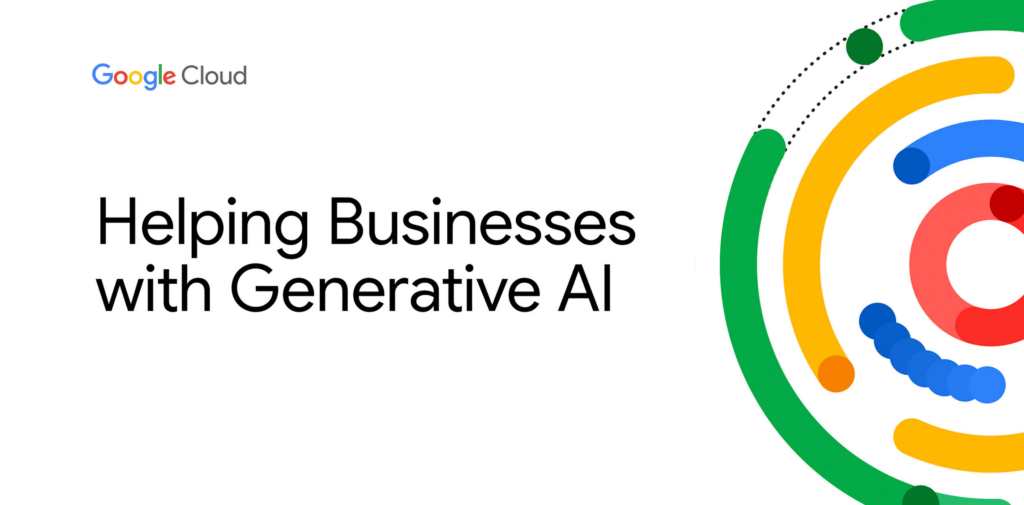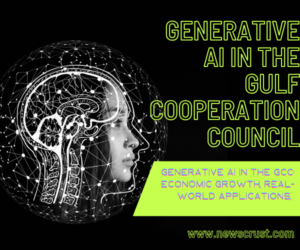
Google Cloud AI
Google Cloud’s AI Revolution: Behind the Scenes of a Rapidly Growing Tech Giant
Google Cloud AI, one of the fastest-growing players in this space, recently posted an impressive 35% revenue increase for the third quarter of 2024, far exceeding expectations and marking its best growth in eight quarters. But what’s driving this growth, and what makes Google Cloud stand out in a fiercely competitive market?
This article takes you behind the scenes of Google Cloud’s AI transformation, tracing its evolution, exploring the latest advancements, and discussing what these changes mean for everyday businesses and users. By the end, we’ll consider a few questions about how this technology might be shaping not just our work lives but our broader society as well.
The Evolution of Cloud Computing and AI: How We Got Here
Back in the early days of cloud computing, companies were mainly interested in moving their data storage and basic computing functions to the cloud. Storing and managing data on remote servers allowed them to cut costs and scale more quickly. But as AI started emerging as the next big thing, cloud providers realized they had a unique opportunity to support and even power this shift toward intelligent automation.
Over time, major players like AWS, Microsoft Azure, and Google Cloud began adapting their services to provide advanced machine learning tools, data analysis, and automated decision-making features. Google’s own AI roots run deep—think of Google Search, Gmail, and Android—so when it entered the cloud computing market, it already had the know-how and resources to innovate quickly.
However, Google’s initial focus was more on the research and development side, and this somewhat limited its appeal compared to AWS and Azure, which were more business-focused. Fast forward a few years, and Google Cloud has positioned itself as a leader in specialized AI services, differentiating itself with innovations like Tensor Processing Units (TPUs), which are custom-designed chips for handling AI workloads efficiently.
Today’s Game-Changer: How Google Cloud Is Shaping AI in Business
So, what’s behind Google Cloud’s recent surge in revenue? Sundar Pichai, Google’s CEO, points to a renewed focus on AI. He shared recently, “Our commitment to innovation, as well as our long-term focus and investment in AI, are paying off with consumers and partners benefiting from our AI tools.”
Google Cloud’s strength lies in its robust AI tools, which are tailored for real business needs. For example, the Dialogflow platform allows companies to build advanced chatbots that can provide personalized customer support. These chatbots are not just automated responders; they’re capable of understanding context, recognizing complex queries, and adapting responses over time. Businesses using Dialogflow have noted that it saves time, reduces customer service costs, and ultimately improves customer satisfaction.
Then there’s Vertex AI, a suite of machine learning tools designed to make AI accessible for businesses, even those without specialized AI expertise. Vertex AI enables users to build, train, and deploy machine learning models that can analyze data and automate decision-making processes. For example, in the financial sector, banks are using Vertex AI to detect suspicious transaction patterns, helping them identify and prevent fraud more effectively.
Another strategic move has been Google’s investment in AI-driven security measures, including enhanced cybersecurity features that identify threats before they become incidents. These capabilities, combined with Google’s focus on privacy and data security, make Google Cloud a compelling choice for industries that require high levels of data protection, like healthcare and finance.
Why Google Cloud? Insights from Industry Experts
Industry experts agree that Google Cloud’s focus on AI has been key to its recent success. Bob O’Donnell, President of TECHnalysis Research, says, “The continued growth of the Google Cloud business this quarter clearly reflects the company’s capabilities in AI being recognized as a key driver in organizations choosing to work with Google.”
Gil Luria, Head of Technology Research at D.A. Davidson, notes, “The Google Cloud business significantly exceeded expectations with meaningful acceleration and margin expansion. This has been the main area where Google has been able to translate its AI capabilities into revenue growth.”
These insights point to a broader trend in the industry: as more companies invest in AI to stay competitive, they’re turning to providers who offer tailored, effective AI solutions. While AWS and Azure still dominate in overall cloud services, Google Cloud’s specialized offerings in AI are helping it carve out a unique space in the market.
Real-World Applications: How Businesses Use Google Cloud’s AI
Google Cloud’s AI offerings cater to a diverse set of industries:
- Healthcare: Google’s AI tools are helping doctors analyze radiology images, identify abnormalities more accurately, and streamline patient care. For instance, some hospitals are using AI to analyze thousands of X-ray images, saving time and improving diagnostic accuracy.
- Finance: Banks and fintech companies are using Google Cloud’s machine learning models to detect fraud by analyzing transaction patterns. These systems can flag potential fraud instantly, giving financial institutions a valuable tool in combating cybercrime.
- Retail: Google Cloud’s AI models are driving personalized customer experiences. Retailers are using AI to analyze customer preferences and recommend products in real-time, helping them increase sales and improve customer engagement.
Practical Tips for Businesses Considering Google Cloud
If you’re thinking about adopting Google Cloud’s AI solutions, here are some practical tips to get started:
- Start with Simple AI Models: AI doesn’t have to be complex. If you’re new to AI, begin by automating simple, repetitive tasks like answering basic customer inquiries or generating product recommendations.
- Use Google Cloud’s Built-In Security: Cybersecurity is increasingly important, especially with AI applications. Google Cloud’s security features, like its Zero Trust model, are designed to protect data from unauthorized access, which is crucial for industries like healthcare and finance.
- Leverage AI Tools for Custom Applications: Google Cloud’s generative AI tools allow businesses to create custom content for customer interactions, marketing, or even creative projects, enabling a more personalized and responsive customer experience.
The Ups and Downs of AI Integration: A Look Inside
To illustrate the journey of AI adoption, consider the story of a small e-commerce company that implemented Google’s Dialogflow for their customer service. At first, the chatbot struggled to handle complex queries, leading to some frustration among customers. But as Dialogflow learned from interactions, it began responding faster and more accurately, leading to higher customer satisfaction scores over time.
Another business, a healthcare provider, faced challenges with migrating sensitive patient data to Google Cloud. Initially, they were concerned about the data transfer and security implications. However, after working with Google’s support team, they successfully integrated AI tools to analyze patient data, helping doctors make quicker, more informed decisions. This experience highlights the importance of planning for both the benefits and potential hurdles of AI adoption.
Questions for Thought
As Google Cloud and other tech giants continue to push the boundaries of AI and cloud computing, it prompts us to consider how this technology will shape our future. Here are a few questions for reflection:
- Ethical Implications: As AI becomes more powerful, how should businesses balance automation with the need for human oversight, especially in critical areas like healthcare and finance?
- Privacy Concerns: With AI analyzing vast amounts of personal data, how can we ensure that privacy is maintained, and who holds accountability if it isn’t?
- Access and Fairness: Will small businesses be able to keep up as large corporations pour millions into AI, or will they be left behind in the AI race?
By exploring these questions, businesses and individuals can think critically about how AI and cloud computing will shape their industries, their daily lives, and perhaps even society at large. In a world where technology is advancing faster than ever, taking a step back to ask these questions may be as important as the technology itself.





